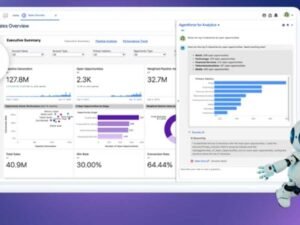The middle school years are a turning point in a child’s life. It’s when preteens are learning to manage academics with social growth and personal responsibility, and when they begin learning skills that prepare them for high school and beyond—a foundation that can even support future needs like finding a credit recovery high school near me.
While some parents wonder if online learning encourages too much screen time, many programs are showing that virtual classrooms can actually build independence in preteens in lasting ways.
Here are six ways how.
1. Self-Paced Learning Encourages Responsibility
In traditional classrooms, students move at the teacher’s pace. Every person in the classroom is dependent on the teacher’s plan and doesn’t get to make their own decisions – at least while on the premises.
But virtual learning gives preteens more control. They’re allowed to complete assignments, watch lessons, and review material on a schedule that works for them. This flexibility helps students recognize their own learning style and take ownership of their academic progress.
2. Time Management Becomes a Daily Habit
Preteens in online schools, such as Virtual Prep Academy, quickly learn that no one is standing over them to remind them of deadlines. While parents do stay in the picture, most of the heavy lifting is left to the student.
Managing their day, from logging into classes to turning in assignments and balancing study with breaks, becomes part of their routine. These small responsibilities help build time management skills that will carry into high school, college, and adult life.
3. Digital Communication Builds Confidence
If you’re in a rural area like Wyoming, enrolling your preteen in a Wyoming online middle school means they will most likely communicate through discussion boards, emails, and video calls. It’s a great opportunity for kids to practice expressing themselves clearly and respectfully in writing and speech.
Good communication skills don’t always require in-person interactions. In fact, digital communication is just as important for both academics and future workplaces. With online schools, kids can become confident in reaching out to teachers, asking questions, and collaborating with other students.
4. Problem-Solving Skills Get Stronger
Technology isn’t always perfect. Whether it’s troubleshooting login issues or figuring out how to upload an assignment on the platform, preteens in online classrooms learn to solve problems on their own.
And when they’re having trouble with a lesson, they may be encouraged to resolve the issue by themselves before seeking help from their teachers.
This independence plays a big part in teaching students resilience and creative thinking – both qualities that prepare them for life’s challenges outside the classroom.
5. Goal-Setting Feels More Personal
In a virtual environment, students often set personal academic goals with guidance from teachers and parents. Preteens get a say in how they track progress, which projects they take on first, and how they measure success.
This involvement makes their goals feel meaningful, motivating them to stay accountable.
6. Balance Between School and Personal Interests
One of the overlooked benefits of online middle school is the flexibility it gives preteens to explore hobbies, sports, or family activities alongside academics.
This balance teaches them how to prioritize, schedule, and maintain healthy boundaries between school and personal life.










